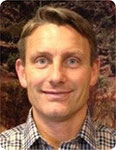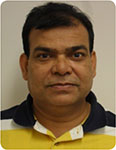Coiled tubing drilling for unconventional reservoirs: the importance of cuttings transport in directional drilling
Mohammadreza Kamyab A , Nelson Chin A , Vamegh Rasouli A , Soren Soe B and Swapan Mandal CA Curtin University
B DET CRC
C AMC Research & Development Laboratory, Curtin University
The APPEA Journal 54(1) 329-336 https://doi.org/10.1071/AJ13033
Published: 2014
Abstract
Coiled tubing (CT) technology has long been used in the oil and gas industry for workover and stimulation applications; however, the application of this technology for drilling operations has also been used more recently. Faster tripping, less operational time, continuous and safer operation, and the requirement for fewer crew members are some of the advantages that make CT a good technique for drilling specially deviated wells, in particular, in unconventional reservoirs for the purpose of improved recovery. Cuttings transport in deviated and horizontal wells is one of the challenges in directional drilling as it is influenced by different parameters including fluid velocity, density and rheological properties, as well as hole deviation angle, annulus geometry and particle sizes. To understand the transportation of the cuttings in the annulus space, therefore, it is useful to perform physical simulations. In this study the effect of wellbore angle and fluid rheological properties were investigated physically using a flow loop that has been developed recently for this purpose. The minimum transportation velocity was measured at different angles and an analysis was performed to study the fluid carrying capacity and hole cleaning efficiency. The results indicated how the change in wellbore angle could change the cuttings transport efficiency.

Mohammadreza Kamyab is a PhD student at the Department of Petroleum Engineering at Curtin University. In 2003, Mohammadreza received his BSc in petroleum engineering-drilling from the Petroleum University of Technology (PUT) in Iran. He received his MSc from PUT and MEng from Curtin University in 2009. Mohammadreza’s research activities concentrate on cuttings transport, hydraulic design, kick simulation and casing design. For simulation purposes he has developed several software applications. Member: SPE and the Australasian Institute of Mining and Metallurgy. m.kamyab@postgrad.curtin.edu.au |

Nelson Chin got his bachelor’s degree in petroleum engineering from Curtin University in 2013. His final project was experimental investigation of the effect of hole inclination on cuttings transport. Member: SPE Curtin student chapter. n.chin1@student.curtin.edu.au |

Vamegh Rasouli is an associate professor and head of department of Petroleum Engineering at Curtin University in WA. He is a Chartered Professional Engineer (CPEng) and is a registered engineer with the National Professional Engineers Register (NPER) of Australia. Vamegh received his PhD from Imperial College London in 2002. In 2006, after joining Curtin University, he established the Curtin Petroleum Geomechanics Group (CPGG) and the Curtin Drilling Research Group (CDRG) in 2010. Vamegh is supervising a number of PhD students and is involved in a number of research and consulting projects in the area of geomechanics and drilling. He has done several projects related to petroleum geomechanics for various companies and has also been a consulting engineer on various geomechanics related projects with Schlumberger’s Data and Consulting Services (DCS) in Perth. v.rasouli@curtin.edu.au |

Soren Soe has held many project, engineering and executive management positions since completing his Bachelor of Science degree in engineering in 1991. He has worked extensively with leading the development of onshore drilling rigs for mineral exploration, production holes, geotechnical applications and coiled tubing rigs for the oil and gas industry. During his career, Soren has expatriated to China, the Netherlands and Poland with companies Knebel Drilling A/S, Boart Longyear and A.P. Moller Maersk. sorensoe@detcrc.com.au |

Swapan Mandal holds a MSc in chemistry and a PhD in polymer chemistry and technology from the Indian Association for the Cultivation of Science (IACS), Calcutta. In 1989 he joined the Oil and Natural Gas Corporation Limited (ONGC) in India, and worked mainly on drilling and completion fluids, as well as oil and gas production and operations. Subsequently, he worked as a consultant fluid specialist and technical engineer with MI Swaco, Baker Hughes, KMC Oil tools and the Australian Mud Company (AMC) in different fields around the world until 2008. He has 28 years’ experience in both research and oil and gas field operations. Swapan is presently the head of AMC’s Research and Product Development Facility, which involves next generation product development, formation damage studies, and environmental impact studies while also providing technical support to AMC’s operations globally. He is also a co-supervisor of a joint research project with CSIRO, Curtin University, and the Deep Exploration Technologies Cooperative Research Centre (DET CRC). Member: SPE. swapan.mandal@imdexlimited.com |


